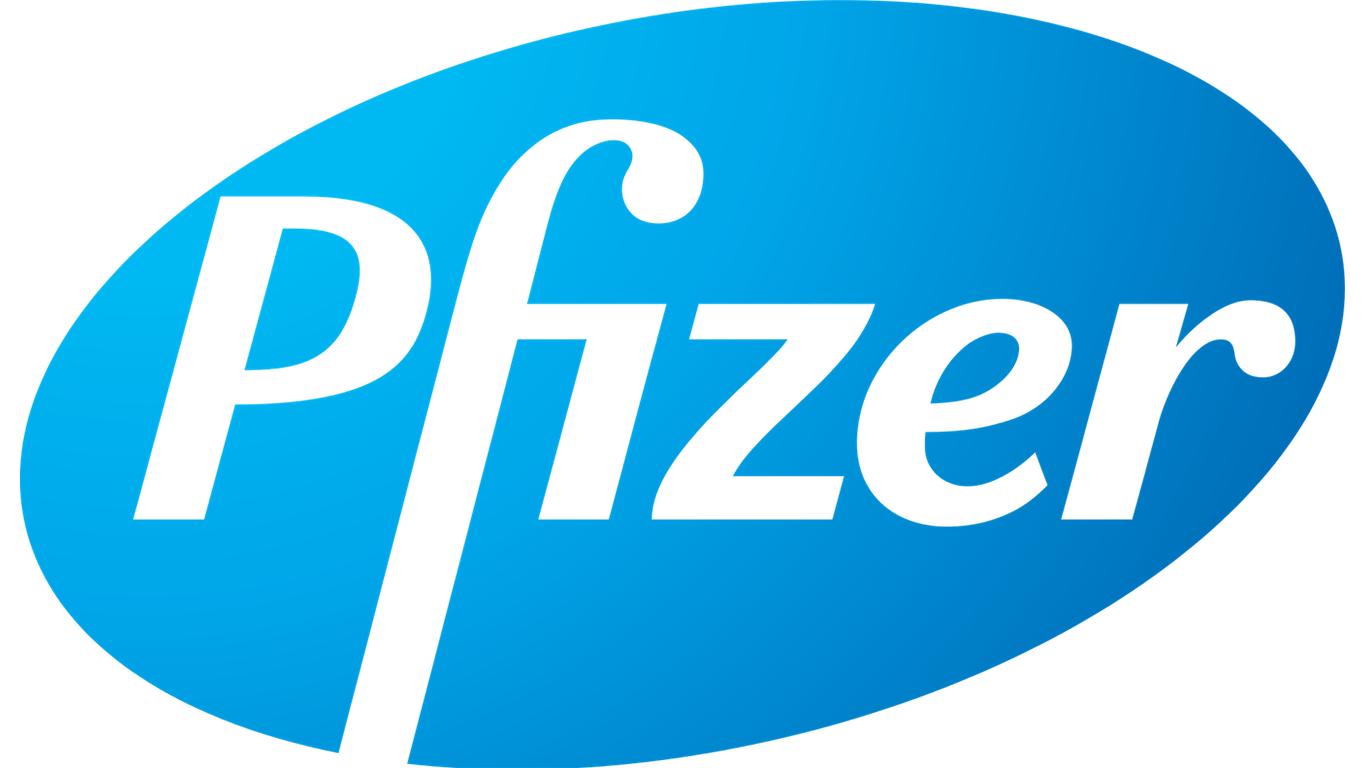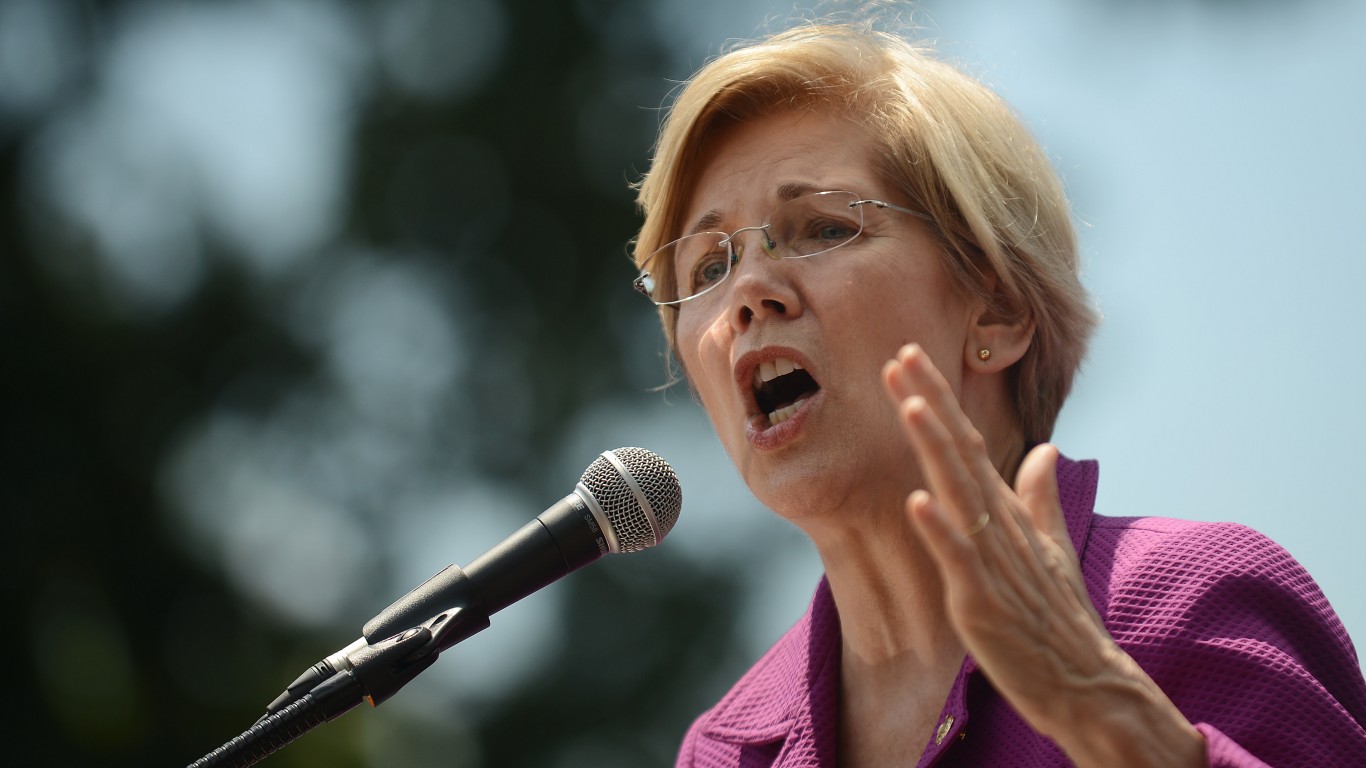
It takes a certain kind of courage to short sell blue chips, such as the Dow Jones industrial average components. Short sellers are betting on these companies to fail, or at least for their share prices to fall handily. Plus, those sellers are responsible for paying the dividends on the stocks they short.
Maybe it is little surprise that only one of the 30 Dow stocks had sizable short interest between August 30 and September 13; that is, more than 50 million shares short. In fact, just six of them had short interest of more than 35 million shares.
[in-text-ad]
While the bull market is quite long in the tooth — now well more than 10 years old — and concern about a possible recession remains as the trade war with China shambles on, the markets are still not that far from all-time highs. Investors may wonder then what the short sellers expect from some of the biggest, most well-respected names on Wall Street.
As of the mid-September settlement date, the most recently reported period, short sellers still favored Pfizer Inc. (NYSE: PFE), Intel Corp. (NASDAQ: INTC) and Microsoft Corp. (NASDAQ: MSFT) above all other Dow stocks.
Pfizer
> Shares short: about 58.54 million
> Change from prior period: −0.6%
> Percentage of float: 1.1
Despite the marginal retreat, Pfizer remained king of the short interest hill in the latest settlement period, a position it has held in most periods since May. Note though that the latest figure is nowhere near the 156 million shares short seen back in January.
During the most recent period, Pfizer released preliminary trial results for its pneumococcal vaccine with infants. Its shares ended the initial two weeks of last month about 2% higher than where they started, despite being up almost 5% earlier in the period. Meanwhile, the Dow saw a gain of almost 4% between the settlement dates.
Shares closed most recently at $36.02 apiece, less than 2% lower in the past week. Pfizer’s 52-week low of $33.97 was seen in the previous short interest period, and the 52-week high of $46.47 was from this past December. The stock now trades more than 17% lower than at the beginning of the year.
Intel
> Shares short: almost 48.18 million
> Change from prior period: −9.7%
> Percentage of float: 1.1
After the third retreat in a row, Intel had the smallest number of shares in the past year. At the average daily trading volume on the latest settlement date, it would take these investors more than two days to cover their short bets.
Intel remains a common top holding in key ESG (environmental, social and governance) funds. The share price ended the short interest period about 12% higher, much of the gain coming early in those two weeks. Note that the Nasdaq ended those two weeks up around 3%, though it retreated somewhat afterward.
Intel was last seen trading at $49.82 a share, well down from the multiyear high of $59.59 seen this past spring and nearer the 52-week low of $42.36. The latest share price is 6% or so higher than at the beginning of the year, but the Nasdaq is up over 20% year to date and the Dow has seen a gain of less than 16%.
Microsoft
> Shares short: more than 46.21 million
> Change from prior period: 0.50%
> Percentage of float: 0.6
Microsoft’s short interest has grown in six of the past eight periods, but the 52-week high of more than 58 million shares short was posted back in January. The days to cover figure slipped just below two as the average daily volume increased somewhat earlier this month.
Like Intel, Microsoft also is a top holding in a number of ESG funds. Short sellers watched the share price both rise and fall in those two weeks, only to end the period essentially flat. That roller-coaster continued afterward as well. The S&P 500 ended the latter half of last month with a gain of near 3%.
After it ended in the past week with a fractional gain, Microsoft stock closed trading most recently at $137.38 a share. That was in a 52-week range of $93.96 (seen last December) to $142.37 (last week). The most recent share price is over 35% higher than at the beginning of the year, compared to that gain of less than 16% for the Dow.
And the Rest
Rounding out the top six most shorted Dow stocks on the most recent settlement date were Apple Inc. (NASDAQ: AAPL), Exxon Mobil Corp. (NYSE: XOM) and Verizon Communications Inc. (NYSE: VZ). All three saw a modest gain in the number of their shares short during the first two weeks of September. Share prices of the three rose, led by the 10% gain at Exxon, which for now is still a Dividend Aristocrat. The iPhone maker unveiled its new video streaming service during the period, and the big telecom is another top holding in key ESG funds.
[in-text-ad]
Also notice on the following list of short interest changes in Dow stocks as of September 13 the double-digit surges in JPMorgan (interest rate concerns), Chevron (Venezuela issues) and Home Depot (shares at multiyear high).
| Dow Stock | Short (millions) | Change | % Float |
|---|---|---|---|
| Pfizer | 58.54 | −0.59% | 1.06% |
| Intel | 48.18 | −9.72% | 1.09% |
| Microsoft | 46.22 | 0.50% | 0.61% |
| Apple | 42.65 | 7.93% | 0.95% |
| Exxon | 37.90 | 1.71% | 0.90% |
| Verizon | 36.28 | 4.95% | 0.88% |
| Cisco | 34.51 | −0.42% | 0.81% |
| Coca-Cola | 28.81 | −9.90% | 0.68% |
| Visa | 28.51 | 2.93% | 1.65% |
| JPMorgan | 25.98 | 10.89% | 0.82% |
| Walgreens | 24.98 | −1.15% | 3.31% |
| Procter & Gamble | 21.72 | 8.26% | 0.87% |
| Chevron | 20.14 | 14.38% | 1.06% |
| Merck | 17.98 | −10.67% | 0.70% |
| Disney | 17.53 | 1.01% | 0.98% |
| Walmart | 15.77 | 1.85% | 1.12% |
| IBM | 15.20 | −5.57% | 1.22% |
| Johnson & Johnson | 14.23 | −0.38% | 0.54% |
| Home Depot | 12.94 | 26.00% | 1.18% |
| Dow | 9.23 | −3.33% | 1.24% |
| Caterpillar | 8.64 | 2.77% | 1.54% |
| Nike | 8.13 | −6.58% | 0.67% |
| 3M | 8.13 | −5.93% | 1.41% |
| UnitedHealth | 7.75 | −1.19% | 0.82% |
| Goldman Sachs | 7.54 | −0.23% | 2.24% |
| United Technologies | 6.12 | 4.97% | 0.71% |
| McDonald’s | 5.82 | 2.41% | 0.77% |
| American Express | 5.24 | −6.54% | 0.63% |
| Boeing | 5.08 | −3.91% | 0.91% |
| Travelers | 3.22 | −18.89% | 1.24% |
Travel Cards Are Getting Too Good To Ignore (sponsored)
Credit card companies are pulling out all the stops, with the issuers are offering insane travel rewards and perks.
We’re talking huge sign-up bonuses, points on every purchase, and benefits like lounge access, travel credits, and free hotel nights. For travelers, these rewards can add up to thousands of dollars in flights, upgrades, and luxury experiences every year.
It’s like getting paid to travel — and it’s available to qualified borrowers who know where to look.
We’ve rounded up some of the best travel credit cards on the market. Click here to see the list. Don’t miss these offers — they won’t be this good forever.
Thank you for reading! Have some feedback for us?
Contact the 24/7 Wall St. editorial team.

 24/7 Wall St.
24/7 Wall St. 24/7 Wall St.
24/7 Wall St.



